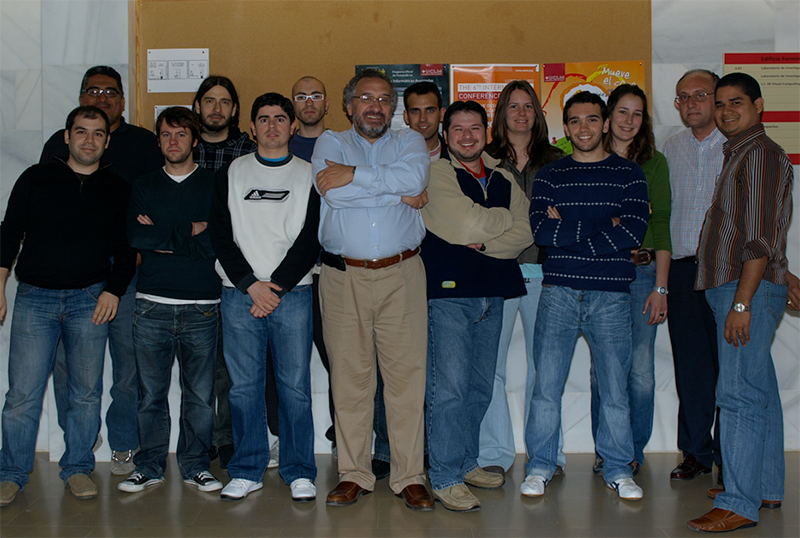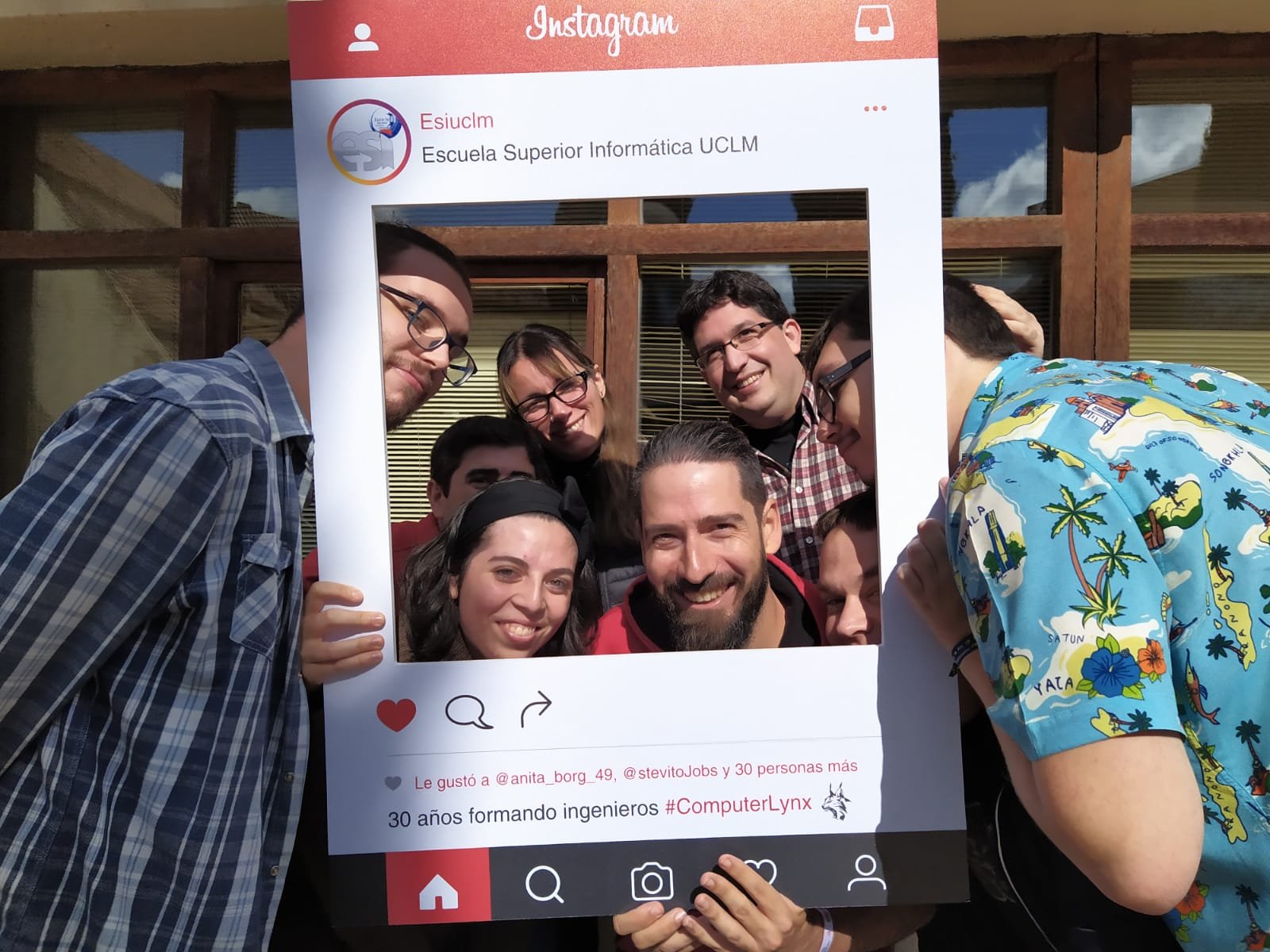Our History
MAmI Research is a group from the University of Castilla-La Mancha (UCLM), and belonging to the Escuela Superior de Informática de Ciudad Real and the Instituto de Tecnologías y Sistemas de Información, is specialized in different areas related to Interactive Systems and Ambient Intelligence. Originally, the group's application areas were diverse, but in the last 10 years most of the effort has been made around health and wellbeing. This group has developed intelligent and personalized technological solutions for health, through the combination of embedded sensors, mobile computing, neurosciences and interactive applications. The group mainly faces challenges related to health monitoring and physical and cognitive rehabilitation. In these terms, MAmI has participated in several national and regional projects, in the fields of Ambient Assisted Living (AAL), Alzheimer's diagnosis and patient support, mobile monitoring of obesity and diabetes, support to instrumental daily activities (IADL), gait analysis and frailty diagnosis, cognitive rehabilitation, among others; all of them with the aim of improving the quality of life and autonomy of patients and families.
Early years
At the beginning, MAmI was specialized in applying Ubiquitous Computing & Ambient Intelligence paradigms to learning environments through Identification technologies. We model these contexts by means of Radio-frequency Identification (RFID) technology. In this sense, we have studied different scenarios such as classrooms, learning labs, meeting rooms and conference places. All of them, by using our “who" model: through “where" and “when" is possible to obtain “what" tag, that is, services for supporting learning process. Some problems of the standardization of RFID technologies and the arrival of Near Field Communications (NFC) technology, led us to research about new ways to conceive the interaction by touching objects with tags. The “who" model had been changed and, another natural interaction by touching tags, opened us new ways to interact with the intelligent environment. “Tagging Context" and “Tagging Awareness" have resulted in two new theses in MAmI. Furthermore, in terms of mobile computing, MAmI is specialized on monitoring healthcare by means of mobile phone and biometric devices to measure blood pressure, temperature, glucose, blood oxygen, and other vital signs. Furthermore, we are using other devices embedded into the mobile phone such as accelerometer and gyroscope, making possible the development of projects in the following areas: rehabilitation, frailty, physical exercises, context-aware, virtual reality and so on. Most of these, applied to enhance the life quality of elderly people by monitoring, healthcare and inclusion.

Recent years
In recent years, one of the main works of the group belongs to the area of technologies for the treatment and diagnosis of chronic or degenerative diseases. MAmI research group has participated in European projects (PIA: Personal IADL Assistant, AAL call, http://www.aal-europe.eu/projects/pia/ and UbiHealth from Marrie Currie call) and national projects (ALIADO, Alzheimer Intelligent Ambient Domotic System; and TALISMAN, Intelligent system for the follow-up and promotion of personal autonomy projects, developing systems, based on applied research, involving elderly people and people with dementia). These projects have in common health care solutions based on mobile interactive devices. MAmI has also led the coordinated project FRASE (MCIU Spain, Challenges 2014-16), focused on providing minimally invasive, low-cost and easily deployable solutions to enable continuous assessment of human walking. The estimates of gait variability, together with other spatial-temporal parameters obtained with the Quantitative Gait Analysis (QGA) solutions developed, constitute a functional marker that helps to characterize the fragility syndrome. In 2019 the national project of the call for research challenges entitled “Mobile-computing-based Multitasking for Mild cognitive impairment Monitoring and early Screening (M4S)" started. This project aims to study the impact of the cognitive condition on the interaction and use of smartphones in order to support the early diagnosis of mild cognitive impairment. User Behavior and Interaction Patterns (called BIPs) will be studied as part of dual tasks in which the user is, in this case, walking and using the smartphone at the same time.
We currently have three national projects underway entitled: Self-recharging sensorised insoles for continuous and long-term monitoring of human gait, Intelligent transformation of the care process based on activities of daily living (ADL) and its intervention with digital solutions, and Just move!: Early detection of mild cognitive impairment through the analysis of human movement in daily life; and a regional one entitled “SHARA3: Holistic care system based on affective and proactive robots for older adults".

Last but not least
Remember,"A good tool is an invisible tool. By invisible, I mean that the tools does not intrude on your consciousness; you focus on the task, not the tool" (Mark Weiser)

Information
Address
Escuela Superior de Informática de Ciudad Real
Address: Paseo de la Universidad 4
13071 Ciudad Real, Spain
Contact Information
Call: +34 926295300 Ext. 3713
Email: grupo.mami@uclm.es
